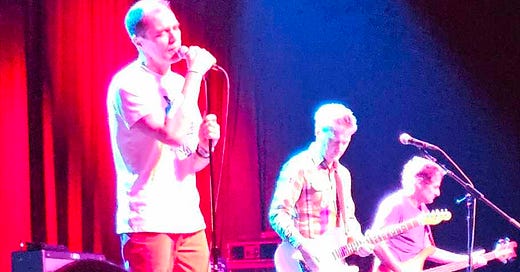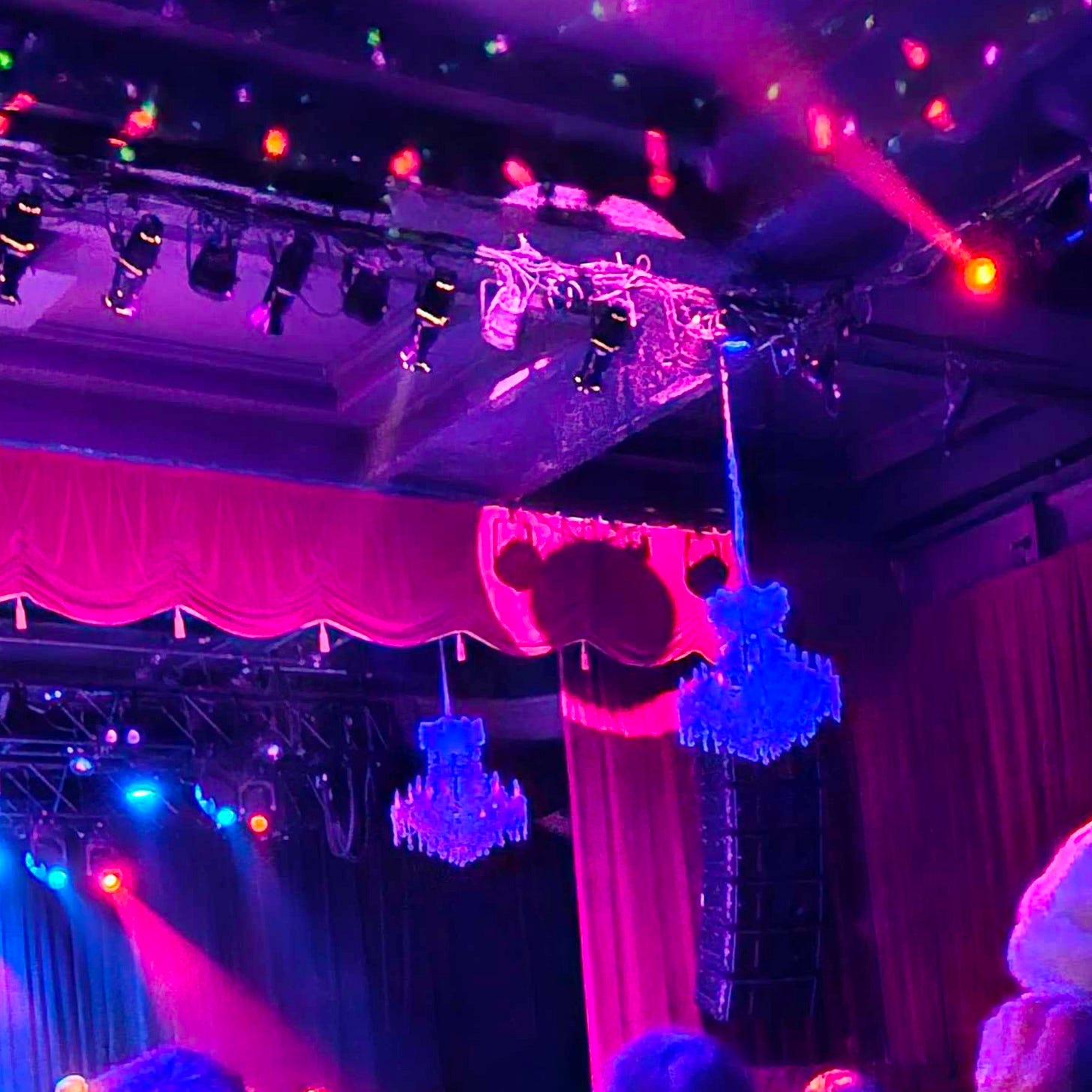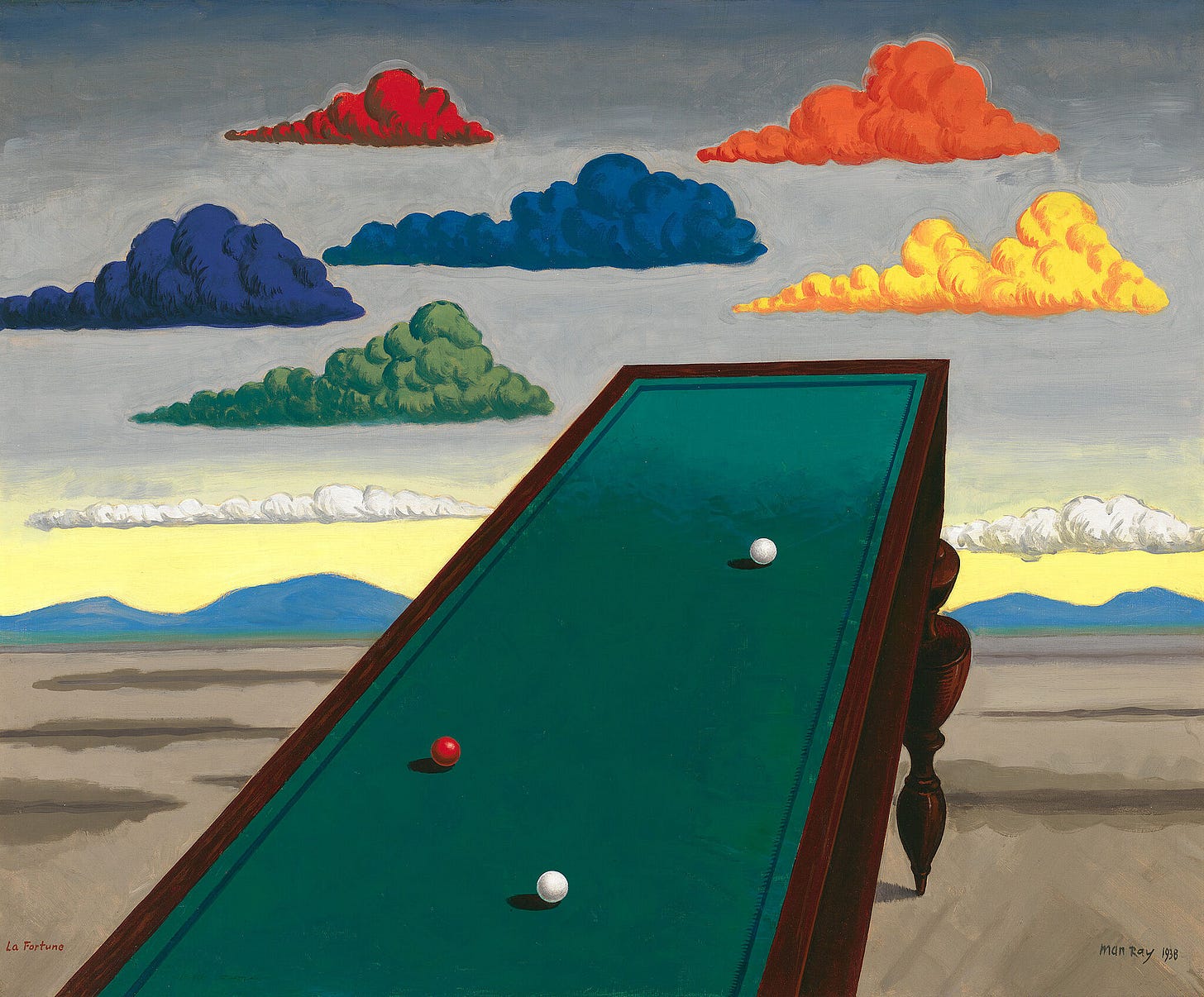Way back in the 1980s, when I moved to a giant Victorian house in San Francisco, my very first landlord played in a Rolling Stones tribute band, and you can’t imagine the contempt my friends and I held him in for that. We were all of us utterly immersed in the indie rock scene – one of my roommates was already a low-level rock star on an important indie rock label – and we didn’t care about the Stones very much: hoary old men, we thought them. We thought our landlord was old too, although I realize now he was actually young. We were just younger.
The band we cared about most at the time was R.E.M. Their music colored our worlds in ways I am only just now exploring. In fact, recently I was on a bunch of flights – 27 hours’ worth of flights to be exact – and during this enforced period of stillness I listened to a lot of R.E.M. Their music doesn’t give me the zoomies, like punk and grunge does, or cause me to get too thinky, like lyric-heavy ballads do, or challenge me and make me uncomfortable like the music of Kendrick and Megan, much as I love all those things. With R.E.M, all the memories are good ones, every single one of them – and how many bands can you say THAT about?
But hearing live music is different than hearing recorded music, maybe because you have to listen to it while standing up. It is different, and it is better, and I hadn’t been to a show in months and months. Still, if you told me that forty years ago I’d be going to see an R.E.M. tribute band at the Fillmore, I’d have been dismayed, but here we are: so much has changed that the things that stay the same become ever more precious. And, just as Marcel Proust spewed forth seven books after eating a single madeleine, I had a feeling that the sound of the opening chords of Fables of the Reconstruction – might have a similar effect:
No sooner had the warm liquid, and the crumbs with it, touched my palate, a shudder ran through my whole body, and I stopped, intent upon the extraordinary changes that were taking place. An exquisite pleasure had invaded my senses, but individual, detached, with no suggestion of its origin. And at once the vicissitudes of life had become indifferent to me, its disasters innocuous, its brevity illusory--this new sensation having had on me the effect which love has of filling me with a precious essence; or rather this essence was not in me, it was myself.
I was on the fence. I couldn’t decide. Was it worth it to go see an R.E.M cover band or did I not have the emotional bandwidth in me for that? It was on a week night, too, and after work home calls out to me in ways that it did not before. When I was young we went to clubs on any old night of the week and the band usually didn’t start until midnight, but everything changes and not just my age or work situation: the very landscape undergoes profound changes as well, that change how we experience show-going. I stopped by Japantown on my way to the Fillmore and all the shops were shutting up at 7:30, and they didn’t used to do that. Then the little stretch from the Kabuki to the corner of Geary was dead in a way it didn’t used to be, and honestly, the entire night sky felt like it was not enthusiastic about this adventure. In the old days one walked up to the club with starry eyes and a spring in one’s step, always so excited to be there, but now, I can’t imagine what band would even make me feel that way.
Alongside the Fillmore itself there was a little line to buy tickets, and I took that to mean that everyone else had the same last-minute impulse as me, having asked themselves earlier: will I even have the energy? Or will I be too depressed? And this one time, I guess we all just went for it.
The show was far from sold out, but not embarrassing, even though no one crowded up to the stage because, let’s face it, we were not seeing R.E.M. themselves, and it makes a difference, mentally. Not quite as much as at the Abba hologram show, but similar. The entire audience emanated a slightly shame-faced aura, a sense of making do; it was like being on a cruise ship and pretending that you weren’t or something.
At least, that was how it felt before it started. After all, although it wasn’t billed this way, the show could or should have been called “Michael Shannon IS Michael Stipe in: Fables of the Reconstruction.” Thus, it wasn’t a tribute show, like Beatlemania, or my boss Mark’s Kiss band where they dress up as the actual band members, and yet, I must have had different expectations of some kind because when I entered the main room at the Fillmore and saw four microphones on the stage, I said to myself, wait a minute, that’s not how it was!
And it wasn’t. REM did not have four singers, six band members, and a keyboard player, at least not at that time in their career., and my dismay at seeing the wrong stage setup reminded me how I didn’t realize how deeply I had internalized every damn REM show I saw of them – and that was a LOT of shows, people, too many to remember them all.
Luckily, I was only disturbed for a few songs by the alterity of the lineup, particularly on Fables third song, which contains one of my favorite moments in all music of all time ever. In my opinion, there should be a U.S. statute made into law stating that no one except Michael Stipe should be allowed to sing the words
The children look up
all they see are
sky blue bells ringing
and maybe not even him again…if I were a police officer, I might have put Michael Shannon under arrest right then, but other than that one moment, he did a good job being Michael Stipe, his voice has the same hollow, resonant timbre and his body affects that loose-limbed, elegant slouch…he was a lot better than we could have hoped for in that role, and the impersonation got better as the show continued and his giant band delved into deeper cuts, including (but not limited to) “Daysleeper,” “Bandwagon,” “A Million,” “Find the River,” “Pretty Persuasion” and “Sitting Still.” Indeed, the farther they strayed from Fables, for some reason, the better it got, and the deeper my thoughts got as well, until they started to seem positively profound.
And as I thought, I sang aloud, sometimes humming and sometimes shouting, even when they were actual nonsense sentences, like, ‘up to par and katie bar/the kitchen sings but not me in…” and as nice as that was, what was important was that everyone else was doing it too. It was a sing-song, a jamboree, a large-scale chorale, and that, after all is why hearing music performed lived is a good and healing thing, in whatever context it happens in. It reminded me of what Paul Gilroy once wrote about listening to reggae and ska music in London in the early 1970s with others from his diasporic community; he said doing so meant that he and his compatriots were “not so much lost as lucky.”
And that is how I felt, as I looked back on a past that gave me this music, not lost, just lucky. Sure, it was nice to hear all that R.E.M stuff live again, but the main point was, everyone in that audience feels exactly the same as I do about R.E.M, and we are living through times where you have to take your comfort where you can, like by huddling together with a small group of people who also know all the words to “Green Grown the Rushes.” Say it with me: we’re not lost, we’re lucky. Not lost, lucky. Lost. Lucky. Lucky, lost. Hey, I can hear you. Can you hear me?







We knee skin!
“Tribute bands” (which I think is different than a cover band) seem to be cropping up more and more these days. In Mpls/St. Paul there are a number of these bands that are a blast. I think as long as they “own” the fact of what they are I’m fine with it.
Where I’m drawing the line these days is when a band tours under their original name but with maybe one original band member. Especially if the main artistic voice of the band is no longer included/alive. Gang of Four is a great example. A band under the name Gang of Four is currently touring but without Andy Gill what are we even doing here? Especially with tickets at $40.